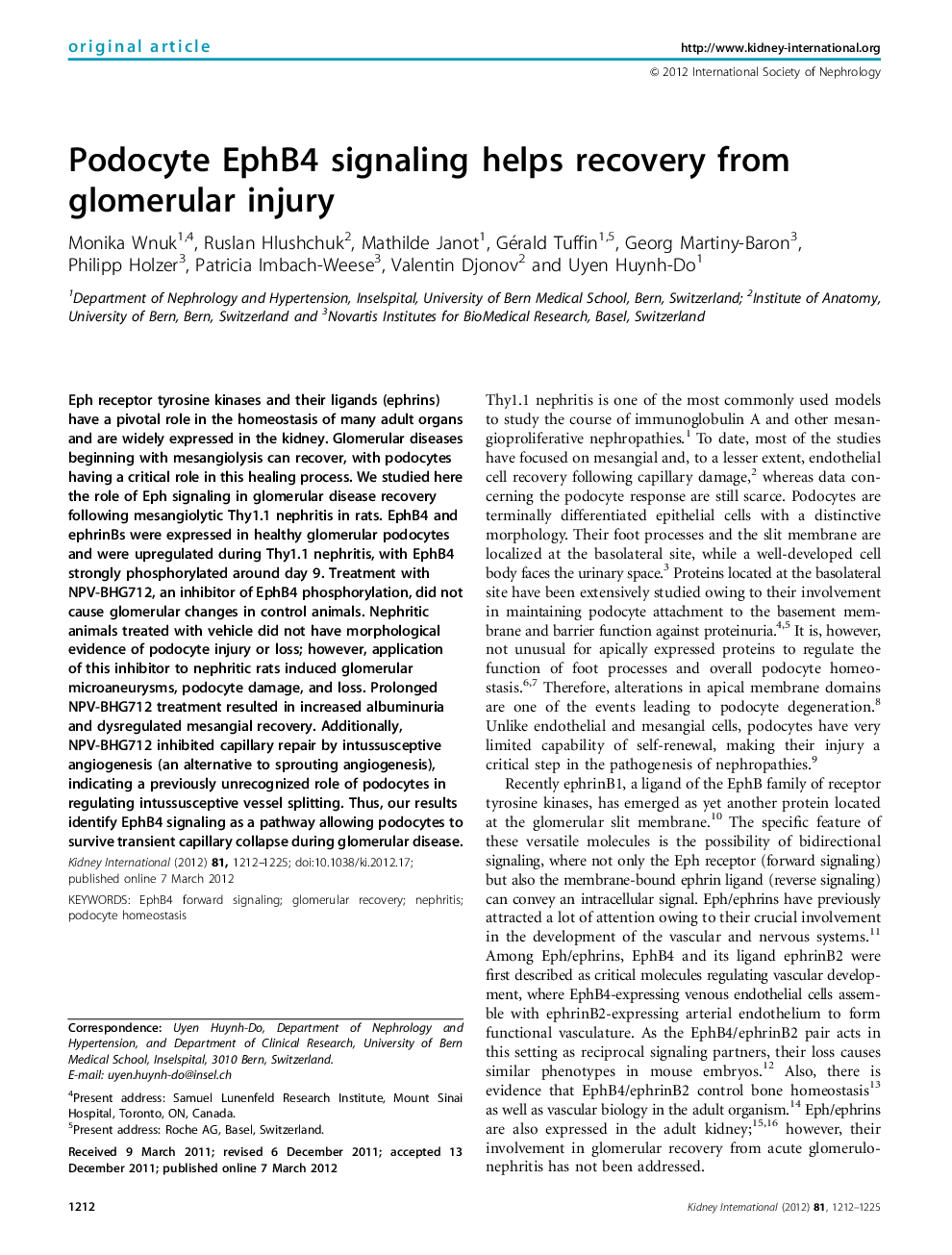| کد مقاله | کد نشریه | سال انتشار | مقاله انگلیسی | نسخه تمام متن |
|---|---|---|---|---|
| 6164318 | 1249468 | 2012 | 14 صفحه PDF | دانلود رایگان |

Eph receptor tyrosine kinases and their ligands (ephrins) have a pivotal role in the homeostasis of many adult organs and are widely expressed in the kidney. Glomerular diseases beginning with mesangiolysis can recover, with podocytes having a critical role in this healing process. We studied here the role of Eph signaling in glomerular disease recovery following mesangiolytic Thy1.1 nephritis in rats. EphB4 and ephrinBs were expressed in healthy glomerular podocytes and were upregulated during Thy1.1 nephritis, with EphB4 strongly phosphorylated around day 9. Treatment with NPV-BHG712, an inhibitor of EphB4 phosphorylation, did not cause glomerular changes in control animals. Nephritic animals treated with vehicle did not have morphological evidence of podocyte injury or loss; however, application of this inhibitor to nephritic rats induced glomerular microaneurysms, podocyte damage, and loss. Prolonged NPV-BHG712 treatment resulted in increased albuminuria and dysregulated mesangial recovery. Additionally, NPV-BHG712 inhibited capillary repair by intussusceptive angiogenesis (an alternative to sprouting angiogenesis), indicating a previously unrecognized role of podocytes in regulating intussusceptive vessel splitting. Thus, our results identify EphB4 signaling as a pathway allowing podocytes to survive transient capillary collapse during glomerular disease.
Journal: Kidney International - Volume 81, Issue 12, 2 June 2012, Pages 1212-1225